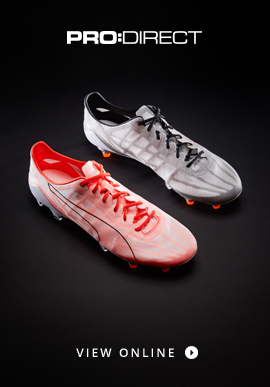East London and proud. Alex Scott is one of the most decorated players the English. World Cup's, Olympic Games and a lifetime of experience. We caught up and took stock from the Arsenal and England girl.
You were picked up by Arsenal at the age of 8. As a girl from London, what can you remember about football around that time?
"I just remember being with the boys in the football cage and just loving the game. I think that’s where it all started. All the skills, the way you had to fight your way in there to be accepted and I just loved it. You play with no cares, no stress, you just always want to be in there playing."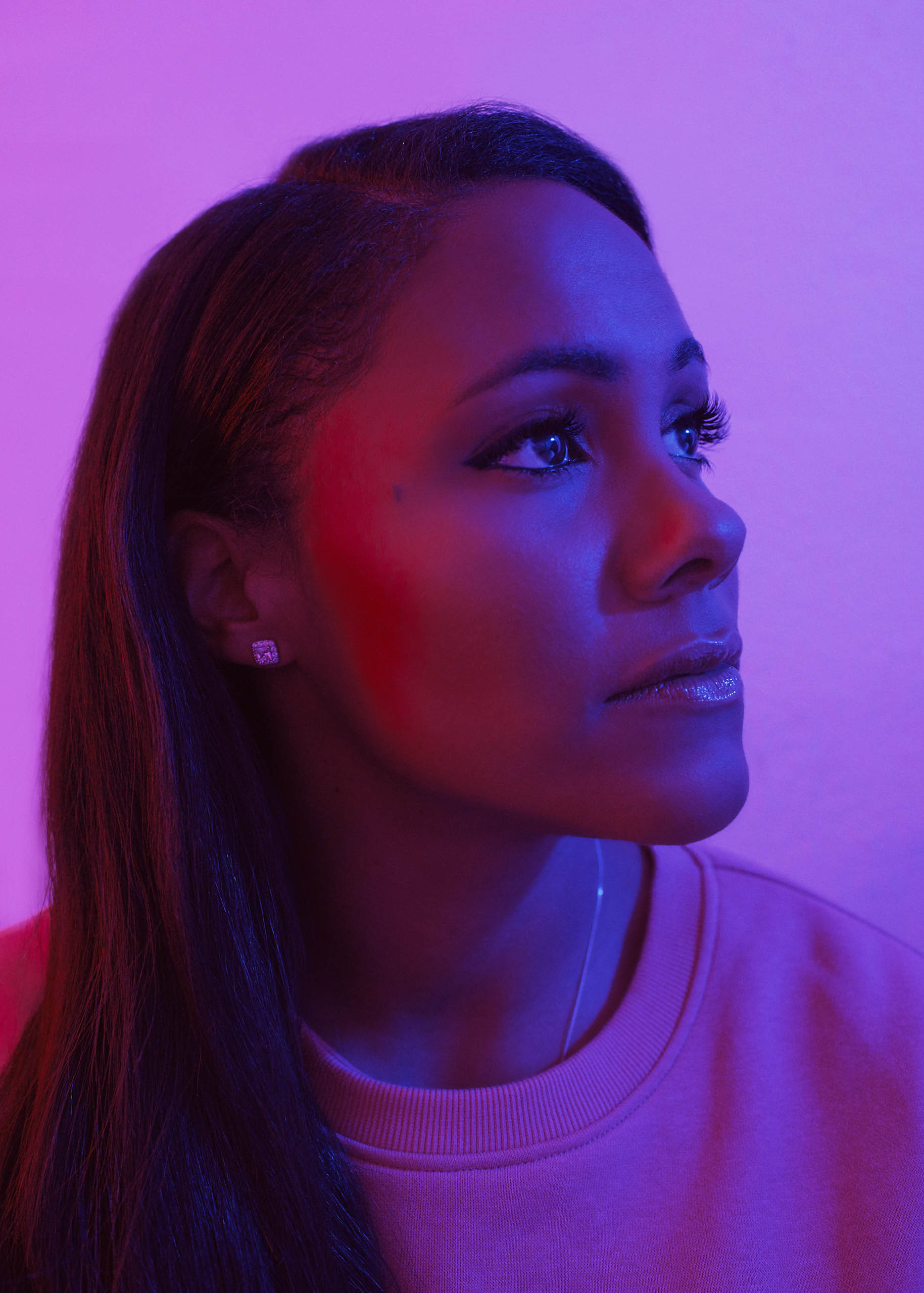
How important is London to you? Home is home right?
"It’s where I grew up and I’m very proud to be from East London, the Cockney side of me is very much with me and it’s where I’m from, that’s my personality. I’m not ashamed to say I’m from a council estate in Poplar. That’s me and that’s what has made me. I knew I always wanted more with my life and to make something of myself."
What was the first football shirt you can remember wanting?
"Jheez, it’s a tough one but I remember at Christmas, that was when I got my first football kit. I remember asking my mum for it at Christmas. It was one of Arsenal’s yellow adidas ones from back in the day with JVC, but at Christmas for me it was about the full kit. Not just the top but the shorts and the socks and on Christmas day I would wear the full outfit!"
Did it stop at Christmas day or did it carry through into every other day after that?
"Always. As soon as I would get home from school, straight into it. It’s funny actually, I can remember Christmas day well and having a friend who lived around the corner from me. I’d go around there and knock on the door in my full football kit and be like 'look at my full kit!'"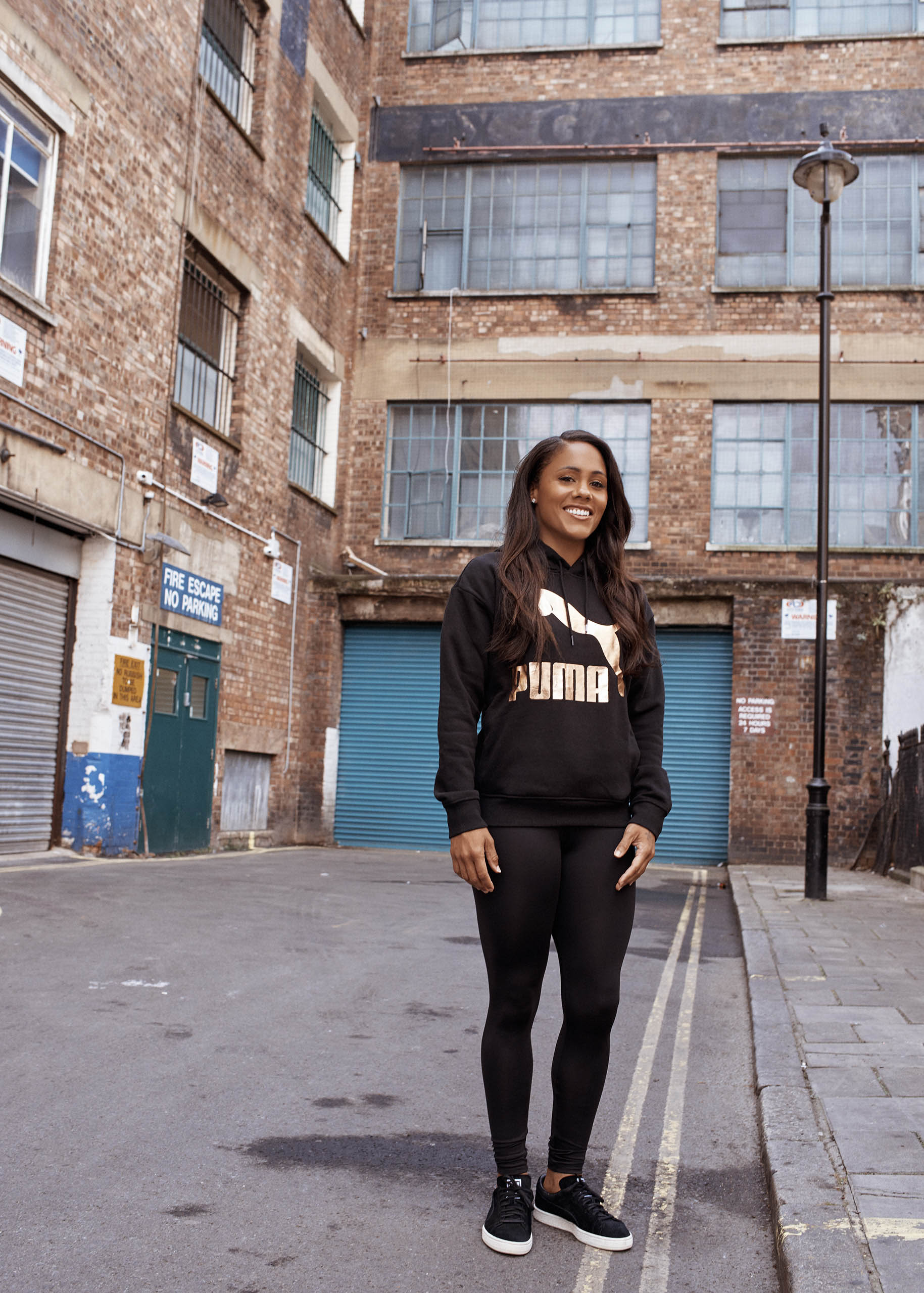
Were your friends into football as much as you were?
"I suppose, because of my brother and when he was playing football... it was from an era when there were a lot of players coming through and from the local area ― the likes of Rio Ferdinand and Ashley Cole. My brother went to school and was connected to all of that so I was around those sort of people and it’s all we ever wanted; to be a footballer, to play in the football cage and ultimately break out. I do look back and amazed I managed to do that too."
Staying away from stereotypes, were they surprised to see a girl bossing it?
"Well, I was just one of the boys really. It was never like 'oh there’s Alex, the girl over there'. I had to hold my own other wise I wouldn’t be accepted in the cage. So it was never about that. I was always one of those that got picked when playing Wembley doubles and all that. I was very lucky to be accepted."
Going from Wembley doubles to the real deal, can you remember those dreams and ambitions you had as an 8-year-old?
"I remember, when we were playing in the cage and scoring and it feeling like you were actually at Wembley. In many ways, that was my Wembley. I just remember feeling overawed when I was picked up by Arsenal. Travelling to training to Tuesdays and Thursdays at Highbury, I remember walking in and I used to be seeing people like Ian Wright driving in their cars and I would just be star struck because I supported Arsenal as well. I loved it, every Tuesdays and Thursdays, that was my go-to place to train. I remember at the stage when I was starting to break into the first team and people were questioning my ability. I suppose, that’s where my upbringing came through ― I just wanted to prove everyone wrong. I didn’t want this opportunity to pass me by and then go to a normal job. I was always hungry and that inner drive kicked in."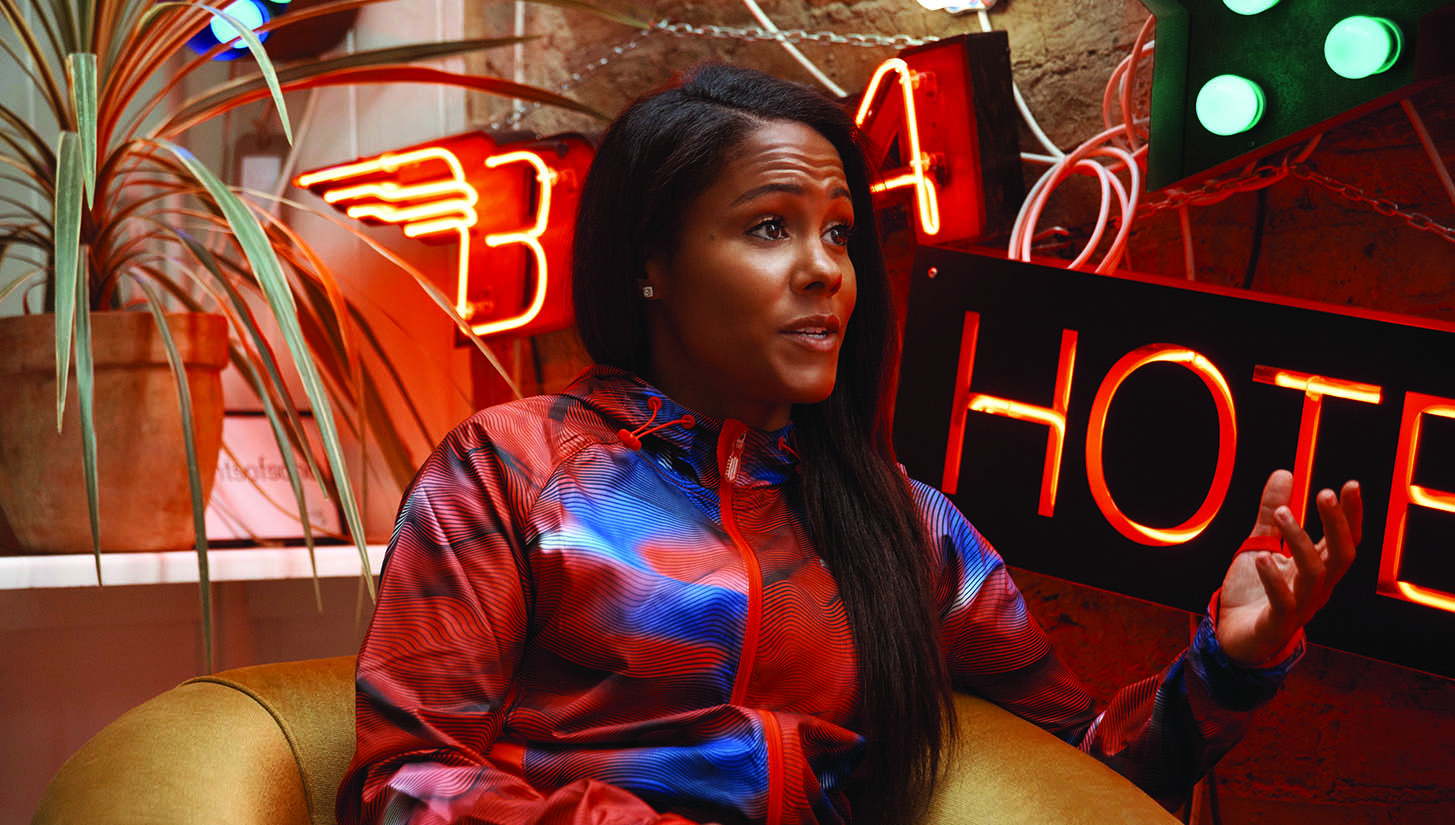
What was the routine like at Arsenal when you were younger ― how on par was it with the youth coming through on the men's side?
"I suppose Vic Akers had a lot to do with that and in turn the changes to women’s football. He was the one who founded Arsenal ladies and got that backing from the men. Even though we weren’t professional back then, because he was so involved in the first team, he was like 'even though you’re not professional, you still need professional standards.' We used to train at Highbury, doing stair runs and I used to hate it but he pushed for all that change in women’s football. From then we had the semi-professional set-up and now we have the professional game."
And in today's game there's no more baggy hand-me-down kit?
"That was a big thing as well. Do you know what, I remember at Highbury, because Vic was the kit man and had access to all the senior men’s squad, on one occasion I remember telling him I didn’t have any boots. He went into the store cupboard and he gave me Marc Overmars’ boots. I was too scared to wear them, I think I’ve still got them in my loft at home. To me it was like treasure and I couldn’t believe I was being handed Dennis Bergkamp or Marc Overmars’ boots."
What do you think the catalyst was to change?
"It really was people like Vic. Fighting for the standards, banging on the doors to make finals come to Wembley and things like that. He was doing all that. I think Hope Powell also made an enormous change. She got the England team qualifying again for major tournaments. In 2007 we qualified for the World Cup for the first time in like 15 years. Because we did so well, people started gaining interest. With success, there are always more eyes. They did so much for women’s football and the national team, for us to keep qualifying for tournaments to then go on to places like last year when we won the Bronze medal. It just keeps elevating the sport.
London 2012 was also mad. I don’t think any football player growing up, boy or girl would have dreamed of being in the Olympic football team. It was always World Cup or European Championship, but being part of London 2012, it really escalated it all to another level. The crowds that we got ― 80,000 at Wembley to watch us ― it really opened people’s eyes to the sport in this country too."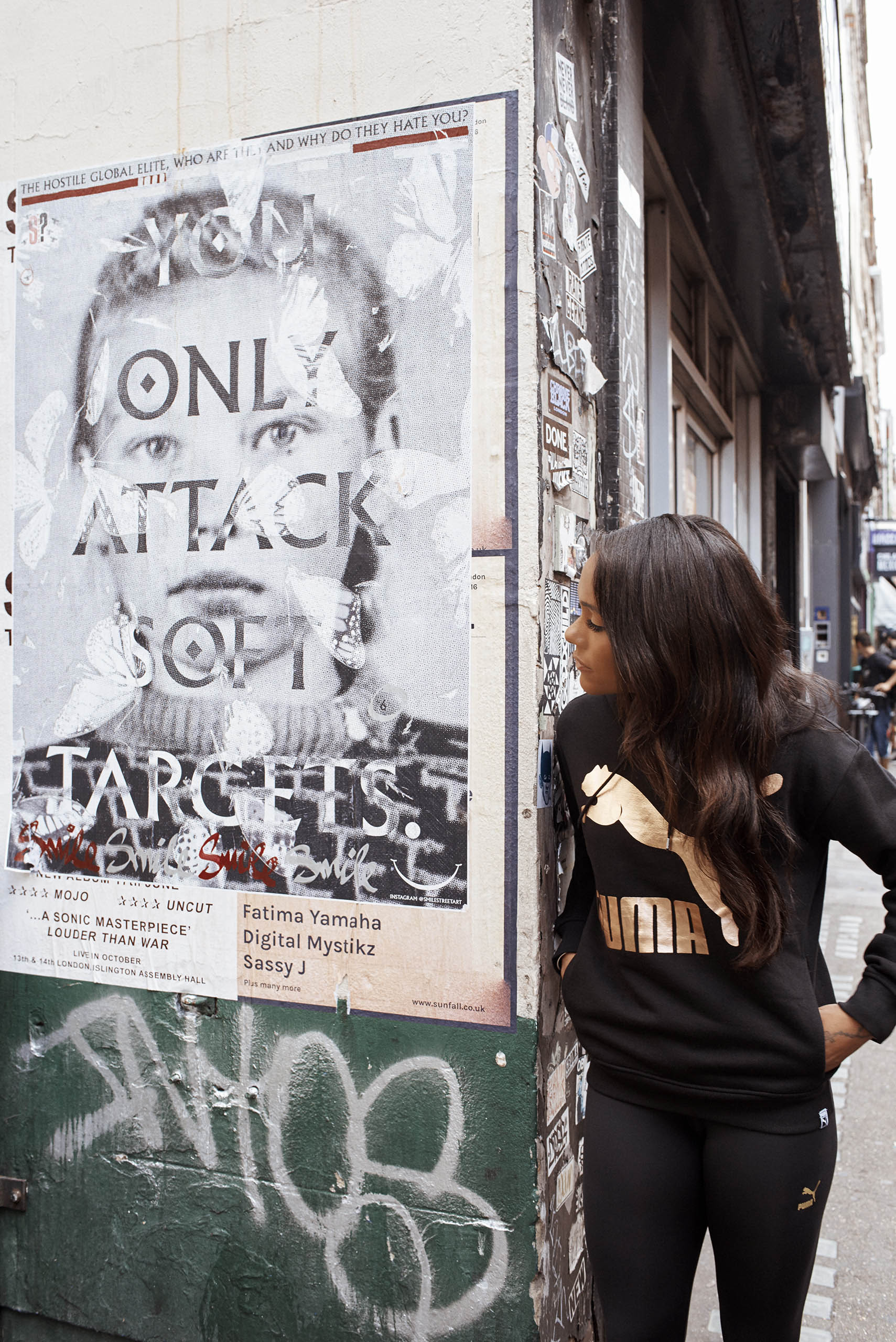
When you get to the age of 16,17, or 18, that's when a players career will either step up or fall away. What are the pressures like at that age in the women's game?
"Yeah I think for those of us that got to the World Cup in 2007, a lot of younger players were coming through at that time. I made my debut at 18 ― Caz Carney was 17, I think ― and we were lucky because we were part of a whole new generation that was coming through and as a result, changing the England team. I think it’s harder for younger players coming through now to break into the national team because you’ve got to be of a certain standard. I do think around that age ― 18 and 19 ― you need that something special to be knocking on the senior door."
Did you see a lot of mates dropping away at that time?
"I did and you know what, it’s mad because I wasn’t one of the ones that was supposed to go to the top. There were a lot more talented girls than me at Arsenal who were expected to reach the top. I suppose I was never looked at as one of those. I think that actually made me more determined and probably goes to show that it doesn’t matter how much talent you have, if you haven’t got that drive and determination to back it up, you’ll fall short."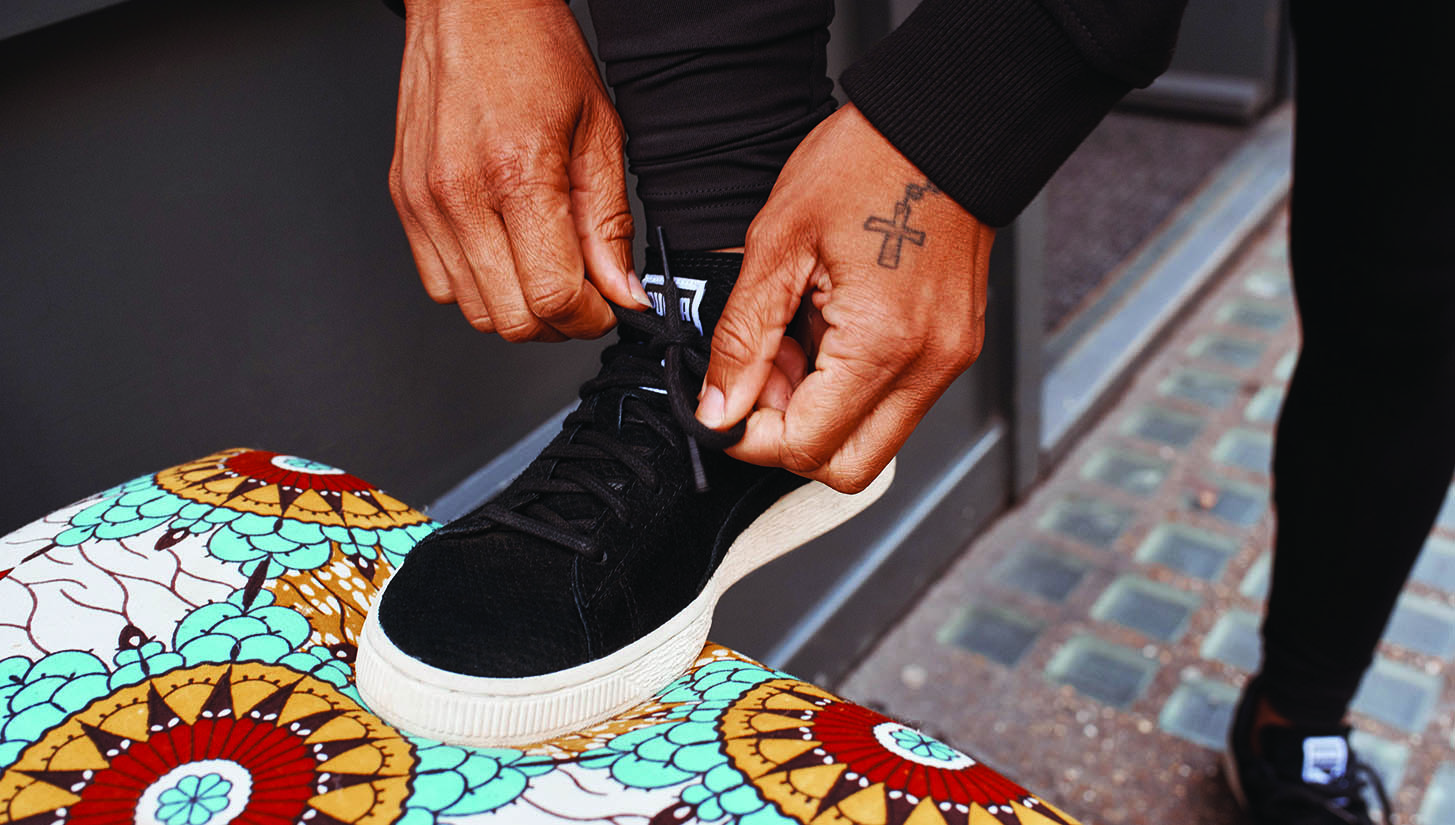
You control the sounds coming out of the dressing room, correct?
"Yeah, music has just always been a big part in my life. I love going to festivals, concerts, all of it and I think there’s no better place than in a changing room. There’s nothing worse than a quiet changing room, the music relaxes people and gets people livened up. I know I’ve got to keep certain people happy in there with the choice of music too. Some people like poppy music, I’m an R&B girl so I take care of that but you’ve got to cater for all tastes."
Turning to the international game, what do you think the most important ingredient has been to get where you are today?
"I think never being that person who was tipped for success and always having to fight and prove people wrong. Even though Vick Ackers played such an important part in my career and my life really, he was like a second father figure, the one that I was always trying to impress at Arsenal. He had that power and control. He believed in me but wasn’t so sure I’d make it to the top so it was always me wanting to prove him wrong. I’ve never taken my place in any squad ― whether it be England or Arsenal ― for granted. I’ve always been that player, along with the likes of Farah Williams, thinking I wouldn’t get picked. It all comes from thinking that opportunity could be taken away so it gives you that extra fight to succeed. That attitude is key."
What’s that been like going through the changing attitudes towards women's football?
"People used to be very quick to judge the game without even watching it. Once they come to see a game live, there are a lot of opinions that change. I’ve heard plenty of people admit that they were wrong about women’s football. I can just urge people to come to a game before they make judgements and experience it. I remember coming back from the World Cup last year and being stopped by grown men who said well done and that they had been going to the pub to watch it and things like that so I think that’s a sign of where we are. There’s been a massive positive change and it’s about kicking on from there."
We can't not talk about those big tournaments. What's that experience like and what do you remember about both to World Cup and the Olympics?
"In 2007 we all experienced our first World Cup and I’ll never forget it. We got knocked out of the quarter-final but the whole experience of being in a World Cup was amazing. London 2012 was just on another level. That day at Wembley ― beating Brazil ― that was simply amazing and I’ll never forget the goosebumps when singing the national anthem. Then last year at the World Cup, winning a bronze medal. The only thing missing from my trophy cabinet is a gold medal and that’s why we’re fighting hard with England. I want to be selected for next years Euros and then hopefully that’s the one."
What goes through your head when you're about to step out onto the pitch, whether it be Wembley, Borehamwood, or out in Canada?
"I’d say I’m not really an emotional person but walking up those steps at Wembley, that one got to me. I’m usually the one laughing as I take it all in but I think that was just a really proud moment. It was the first time that Arsenal ladies ever went into a cup final as underdogs and we were against Chelsea so it was just a huge occasion and the way we played, being captain that day too it was so special."
Football isn't without its lows ― what have been your lowest moments in the game and how did you learn to deal with them?
"Touch wood, I’ve been really lucky with injuries and haven’t had any major injuries throughout my career. I think the lowest moment was probably as a 16-year-old, sitting on the Arsenal bench for a couple of seasons and then having that conversation with Vick about my future. With him telling me 'you know what Al, I don’t know if you’re going to make it', I think that shatters the dream a little. It was all for the right reasons but I thought I would be at Arsenal forever and everything like that. I remember having that conversation and then I had to go to Birmingham for a season to prove myself. That was a big low but I had a great season that year and it enabled me to break into the England team. Vick came back to me and said 'come back to Arsenal, this is your home', and that was huge."
One opportunity you took was to go to America too ― what did you make of the experience?
"That was interesting. They shut down the league just before 2012 because the American team wanted to go into residency to concentrate on winning the Olympics. It was a move that paid in dividends because they went on to win the Olympics. But yeah, I loved it over there. I went when women’s football over here wasn’t professional. It was still semi-professional but we had literally won everything with Arsenal and the games weren’t as challenging. They set up the American league and at the time you could have no more than four internationals in each team. So to even be drafted into the league at that time was something special. It was an opportunity I just couldn’t turn down. I loved every single moment of the three years I was out there."
It must have been a big difference in comparison to the UK?
"I think needed that opportunity because it was a lifestyle experience. It was a chance to be a professional, train everyday and really push on. I remember in my first couple of days over there, my coach Tony DiCicco said to me, 'Alex, you’re regarded as one of the best right backs, I’m going to make you into the best right back.' I suppose it was just that positive American mentality that was just so ruthless in comparison to an English person who would be like, 'oh yeah, I’m going to be the best...' and a little shy. [In America] They are just like, 'No you are going to be the best'. I really needed that at, at that time. In 2011 at the World Cup I got voted the best right back as part of the All Star team so it paid off and I needed someone like him to push me."
Did you come back with a soft spot for America?
"Massively. I just love the lifestyle, the people. You just walk down the street and people would start talking to you ― it suits my personality."
What about style and fashion, is that something you like to ensure is on top form?
"I think as a female athlete, there’s nothing wrong with wanting to look good on the pitch. I take great pride in my appearance. I couldn’t say where my style comes from. In terms of trends, I would say for women’s football it’s definitely eye lashes. Gone are the days when you get baggy hand me down kits too. We want to look good in our kit and also represent the brands and clubs that we’re wearing, well. With tight fitted kits and stuff, it works because we want to look good." 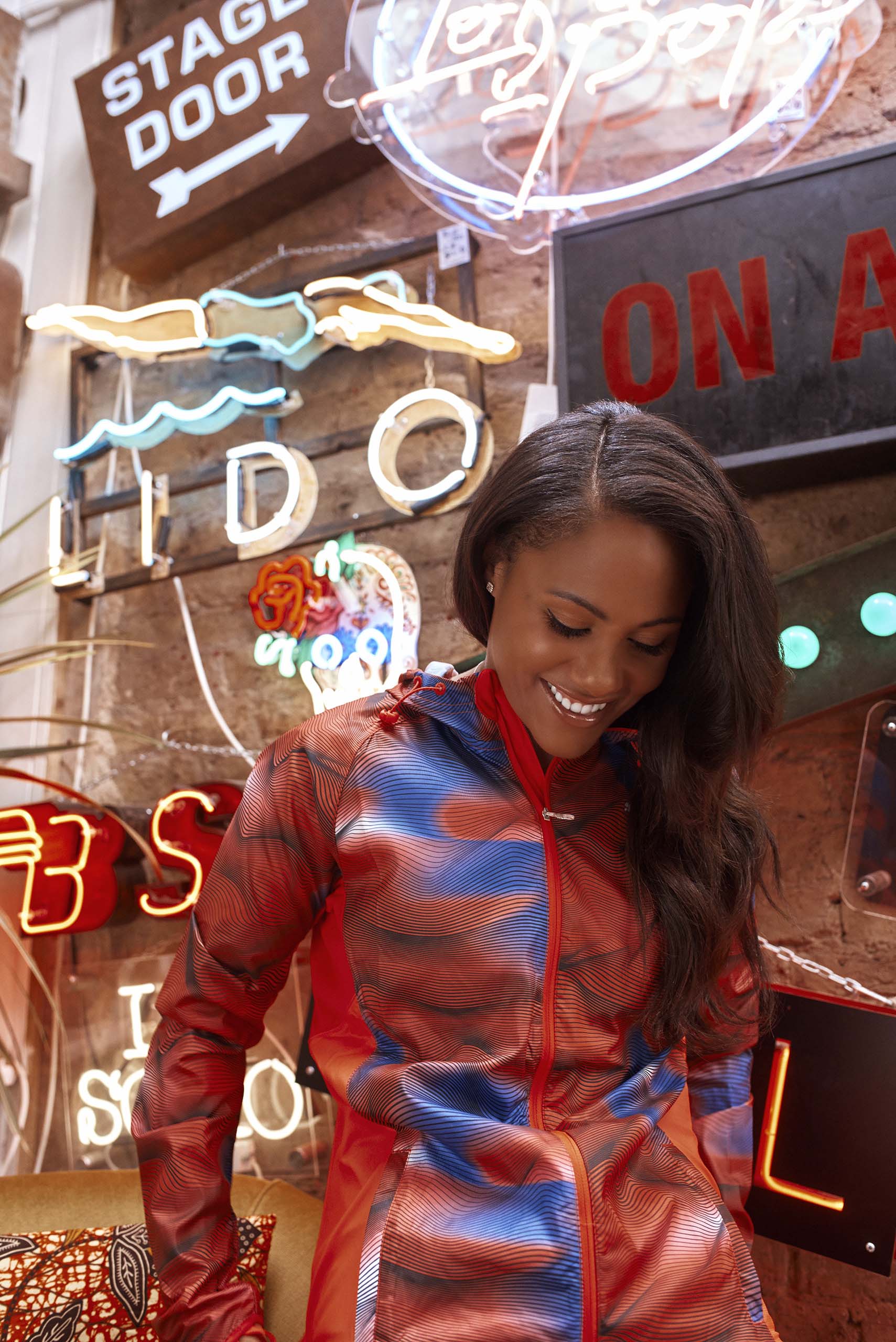
You're busy building a media career too ― have you learnt things about the game you didn't from all those years playing?
"I suppose going into commentary and punditry, ultimately I want to go on to be a presenter. I don’t want to be stuck in one box. But it’s always different but there’s similarities. It’s all about the preparation as you would do when training and playing. Going into matches you have to be prepared and on the other side of it, going into transfer deadline day as an example. I was taking in every bit of information. You have to do the research so you can’t be caught out on camera. You can’t turn up and blag it, there’s a lot of preparation behind the scenes that goes into it. I suppose people sit there and look at presenters and think, “oh that must be easy”, but I’ve learnt it’s definitely not. As well as not freezing, you’ve got the talk back in your ears, your cues, what camera to look at - there’s so much that goes into it that I think people take for granted."
How early on was it when you started making moves into the media?
"It was a couple of years ago now and I think in just having that drive and there not being all that many female football presenters or pundits, it just made me think, “why not?”. I’ve played football my whole life. I can talk about the game to any guy. So why can’t I be up there on the TV doing it and represent for females? Hopefully fingers crossed I can keep it going."
What are your next steps, where do you see yourself in the next few years?
"Eeerm, for me the big one is the Euros next year. I want to get there and do all we can to win it. At the same time I want to keep on winning trophies with Arsenal. Workwise away from that, I’ve been so lucky already having done a TV show on London Live and stuff with Premier League productions and CBeebies, I want to to carry on with as many different opportunities as I can and keep on growing. I think for me, it’s about being true to myself. It’s not about taking every opportunity but about going for things that suit my personality. I’ve got to represent myself as a person and ensure all I do reflects who I am."
Photography by Elliott Wilcox for SoccerBible.
With thanks to Lights of Soho.
